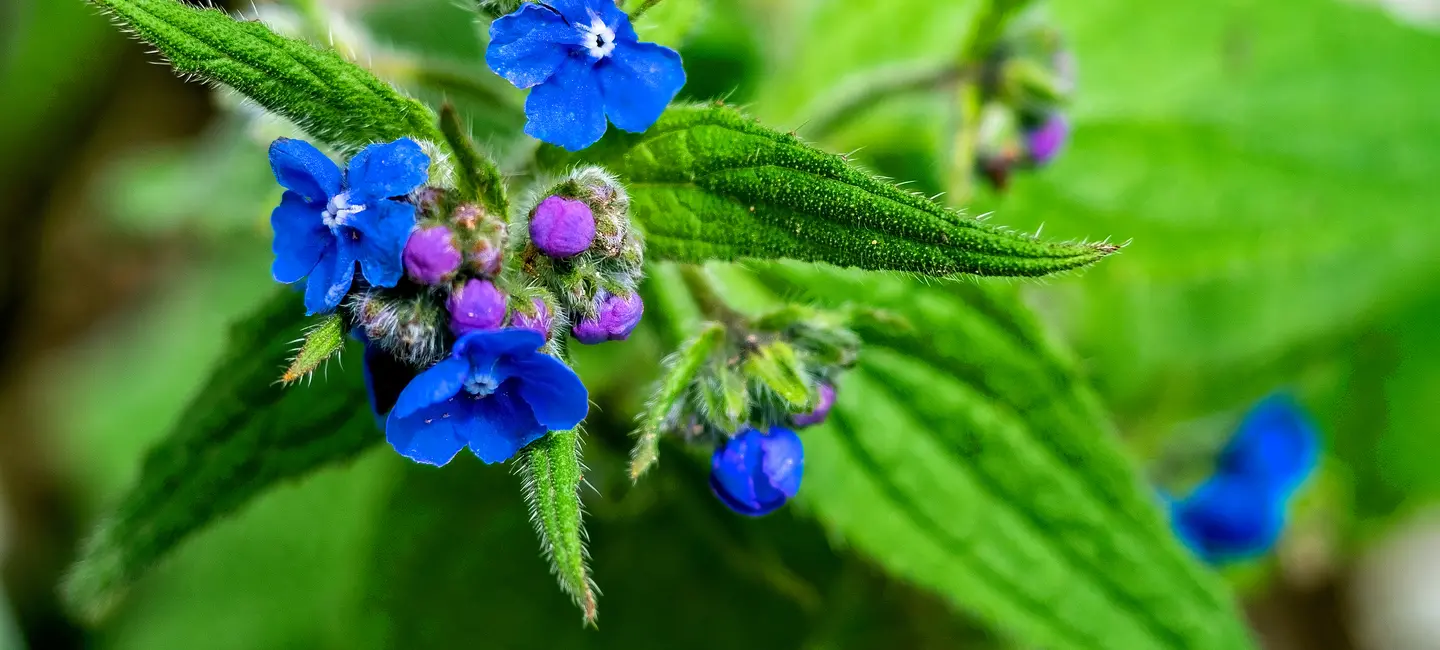
Alkanna is a plant. The root and leaves are used to make medicine.
People use alkanna for wound healing, burns, diarrhea, and stomach ulcers, but there is no good scientific evidence to support these uses. Also, there's concern that using some alkanna products might harm the liver.
Is It Effective?
NatMed Pro rates effectiveness based on scientific evidence according to the following scale: Effective, Likely Effective, Possibly Effective, Possibly Ineffective, Likely Ineffective, Ineffective, and Insufficient Evidence to Rate.
- Burns. Early research shows that using an ointment containing alkanna, beeswax, and olive oil may help burns heal faster than using a regular dressing.
- Wound healing. Early research shows that using an ointment containing 20% alkanna extract helps wounds heal after removal of skin for a skin graft. But it's unclear if the alkanna ointment reduces wound pain or scar formation.
- Diarrhea.
- Skin diseases, when applied to the skin.
- Stomach ulcers.
- Other conditions.
More evidence is needed to rate the effectiveness of alkanna for these uses.
Is it Safe?
Some chemicals in alkanna might act as antioxidants and might also reduce swelling (inflammation).
When taken by mouth: There's a lot of concern about using alkanna as medicine, because it naturally contains harmful chemicals called pyrrolizidine alkaloids (PAs), which can harm the liver. These chemicals can block blood flow in the veins in the liver and cause liver damage. They might also cause cancer and birth defects. Using alkanna preparations that contain these chemicals is LIKELY UNSAFE. Some retailers of alkanna products attempt to remove these chemicals. If they meet certain purity standards, these products can be labeled "hepatotoxic PA-free." But there isn't enough information to know if it's safe to take "hepatotoxic PA-free" alkanna by mouth. It's best to avoid use.
When applied to the skin: There's a lot of concern about using alkanna as medicine, because it naturally contains harmful chemicals called pyrrolizidine alkaloids (PAs). These chemicals can harm the liver. Applying alkanna preparations that contain these chemicals to broken skin is LIKELY UNSAFE. The dangerous chemicals in alkanna can be absorbed quickly through broken skin and can lead to dangerous body-wide toxicity. There isn't enough information to know if it's safe to apply alkanna to unbroken skin. It's best to avoid use. Some retailers of alkanna products attempt to remove these chemicals. If they meet certain purity standards, these products can be labeled hepatotoxic PA-free." But there's not enough information to know if it's safe to apply these "hepatotoxic PA-free" alkanna to broken or unbroken skin. It's best to avoid use.
Special Precautions & Warnings:
Pregnancy and breast-feeding: It's LIKELY UNSAFE to use alkanna if you are pregnant or breast-feeding. Alkanna naturally contains harmful chemicals called pyrrolizidine alkaloids (PAs). Using preparations that contain these chemicals might cause birth defects as well as liver damage if used during pregnancy. These chemicals can also pass into breast milk and harm the nursing infant if used when breast-feeding. Some retailers of alkanna products attempt to remove these chemicals. If they meet certain purity standards, these products can be labeled "hepatotoxic PA-free." But there isn't enough information to know whether it's safe to use "hepatotoxic PA-free" preparations during pregnancy or breast-feeding. Stay on the safe side and avoid use.
Liver disease: Alkanna contains chemicals called hepatotoxic pyrrolizidine alkaloids (PAs). These chemicals harm the liver, making existing liver disease worse.
Medications that increase break down of other medications by the liver (Cytochrome P450 3A4 (CYP3A4) inducers)
Interaction Rating=Moderate Be cautious with this combination.
Alkanna is broken down by the liver. Some chemicals that form when the liver breaks down alkanna can be harmful. Medications that cause the liver to break down alkanna might enhance the toxic effects of chemicals contained in alkanna.
Some of these medicines include carbamazepine (Tegretol), phenobarbital, phenytoin (Dilantin), rifampin, rifabutin (Mycobutin), and others.
Herbs that increase the breakdown of other herbs by the liver: Alkanna is broken down by the liver. Some chemicals that form when the liver breaks down alkanna can be harmful. Other herbs that cause the liver to break down alkanna might increase the toxic effects of the chemicals contained in alkanna. Some of the herbs are echinacea, garlic, licorice, St. John's wort, and schisandra.
Pyrrolizidine alkaloids (PAs)-containing herbs and supplements: Alkanna contains PAs, dangerous chemicals that can harm the liver. Using it along with other herbs that also contain this dangerous chemical might increase the chance of developing serious side effects, including liver damage and cancer. Other herbs that contain hepatotoxic PAs include boneset, borage, butterbur, coltsfoot, comfrey, forget-me-not, gravel root, hemp agrimony, hound's tongue, dusty miller, groundsel, golden ragwort, and tansy ragwort.
There are no known interactions with foods.
The appropriate dose of alkanna depends on several factors such as the user's age, health, and several other conditions. At this time there is not enough scientific information to determine an appropriate range of doses for alkanna. Keep in mind that natural products are not always necessarily safe and dosages can be important. Be sure to follow relevant directions on product labels and consult your pharmacist or physician or other healthcare professional before using.
Alkanet, Alkanna lehmanii, Alkanna Radix, Alkanna tinctoria, Alkanna tuberculata, Anchusa, Anchusa bracteolata, Anchusa tuberculata, Buglosse des Teinturiers, Dyer's Bugloss, Henna, Lithospermum lehmanii, Orcanète, Orcanette, Orcanette des Teinturiers, Orchanet, Radix Anchusae.
Information on this website is for informational use only and is not intended to replace professional medical advice, diagnosis, or treatment. While evidence-based, it is not guaranteed to be error-free and is not intended to meet any particular user’s needs or requirements or to cover all possible uses, safety concerns, interactions, outcomes, or adverse effects. Always check with your doctor or other medical professional before making healthcare decisions (including taking any medication) and do not delay or disregard seeking medical advice or treatment based on any information displayed on this website.
© TRC Healthcare 2024. All rights reserved. Use and/or distribution is permitted only pursuant to a valid license or other permission from TRC Healthcare.
